第127章
After each avalanche the wave which it caused returned on the crumbly bank with tremendous force, and caused the fall of other masses by undermining them.The line of coast over which the landslip extended, was a mile or two in length; the end of it, however, was hidden from our view by an intervening island.It was a grand sight; each downfall created a cloud of spray; the concussion in one place causing other masses to give way a long distance from it, and thus the crashes continued, swaying to and fro, with little prospect of a termination.When we glided out of sight, two hours after sunrise, the destruction was still going on.
On the 22nd we threaded the Parana-mirim of Arauana-i, one of the numerous narrow bywaters which lie conveniently for canoes away from the main river, and often save a considerable circuit around a promontory or island.We rowed for half a mile through a magnificent bed of Victoria waterlilies, the flower-buds of which were just beginning to expand.Beyond the mouth of the Catua, a channel leading to one of the great lakes so numerous in the plains of the Amazons, which we passed on the 25th, the river appeared greatly increased in breadth.We travelled for three days along a broad reach which both up and down river presented a blank horizon of water and sky-- this clear view was owing to the absence of islands, but it renewed one's impressions of the magnitude of the stream, which here, 1200 miles from its mouth, showed so little diminution of width.Further westward, a series of large islands commences, which divides the river into two and sometimes three channels, each about a mile in breadth.We kept to the southernmost of these, travelling all day on the 30th of April along a high and rather sloping bank.
In the evening we arrived at a narrow opening, which would be taken by a stranger navigating the main channel for the cutlet of some insignificant stream-- it was the mouth of the Teffe, on whose banks Ega is situated, the termination of our voyage.After having struggled for thirty-five days with the muddy currents and insect pests of the Solimoens, it was unspeakably refreshing to find oneself again in a dark-water river, smooth as a lake, and free from Pium and Motuca.The rounded outline, small foliage, and sombre-green of the woods, which seemed to rest on the glassy waters, made a pleasant contrast to the tumultuous piles of rank, glaring, light-green vegetation, and torn, timber-strewn banks to which we had been so long accustomed on the main river.The men rowed lazily until nightfall, when, having done a laborious day's work, they discontinued and went to sleep, intending to make for Ega in the morning.It was not thought worthwhile to secure the vessel to the trees or cast anchor, as there was no current.Isat up for two or three hours after my companions had gone to rest, enjoying the solemn calm of the night.Not a breath of air stirred; the sky was of a deep blue, and the stars seemed to stand forth in sharp relief; there was no sound of life in the woods, except the occasional melancholy note of some nocturnal bird.I reflected on my own wandering life; I had now reached the end of the third stage of my journey, and was now more than half way across the continent.It was necessary for me, on many accounts, to find a rich locality for Natural History explorations, and settle myself in it for some months or years.
Would the neighbourhood of Ega turn out to be suitable, and should I, a solitary stranger on a strange errand, find a welcome amongst its people?
Our Indians resumed their oars at sunrise the next morning (May 1st), and after an hour's rowing along the narrow channel, which varies in breadth from 100 to 500 yards, we doubled a low wooded point, and emerged suddenly on the so-called Lake of Ega-- a magnificent sheet of water, five miles broad, the expanded portion of the Teffe.It is quite clear of islands, and curves away to the west and south, so that its full extent is not visible from this side.To the left, on a gentle grassy slope at the point of junction of a broad tributary with the Teffe, lay the little settlement-- a cluster of a hundred or so of palm-thatched cottages and white-washed red-tiled houses, each with its neatly-enclosed orchard of orange, lemon, banana, and guava trees.Groups of palms, with their tall slender shafts and feathery crowns, overtopped the buildings and lower trees.Abroad grass-carpeted street led from the narrow strip of white sandy beach to the rudely-built barn-like church, with its wooden crucifix on the green before it, in the centre of the town.
Cattle were grazing before the houses, and a number of dark-skinned natives were taking their morning bath amongst the canoes of various sizes, which were anchored or moored to stakes in the port.We let off rockets and fired salutes, according to custom, in token of our safe arrival, and shortly afterwards went ashore.
A few days' experience of the people and the forests of the vicinity showed me that I might lay myself out for a long, pleasant, and busy residence at this place.An idea of the kind of people I had fallen amongst may be conveyed by an account of my earliest acquaintances in the place.On landing, the owner of the canoe killed an ox in honour of our arrival, and the next day took me round the town to introduce me to the principal residents.We first went to the Delegado of police, Senor Antonio Cardozo, of whom I shall have to make frequent mention by-and-by.